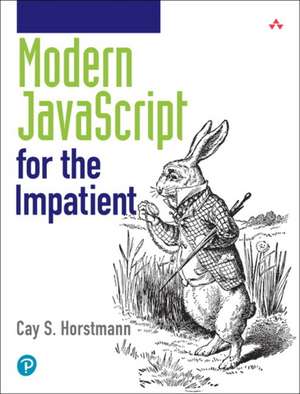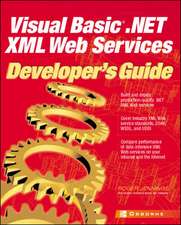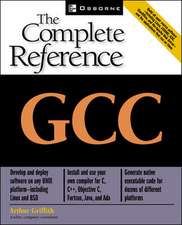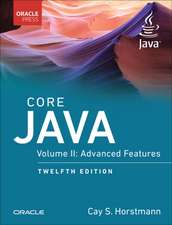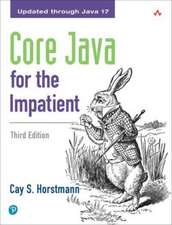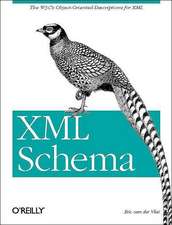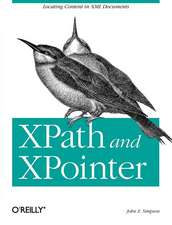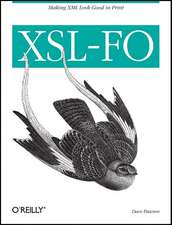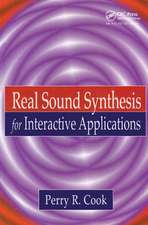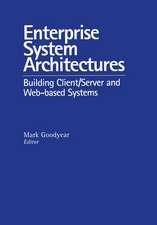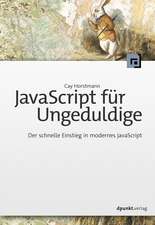Modern JavaScript for the Impatient
Autor Cay Horstmannen Limba Engleză Paperback – 30 iun 2020
Today, JavaScript is radically different and more powerful than ever. In an environment where user interfaces are increasingly web-based, it's become the "lingua franca” of the web browser. Frameworks such as Electron and platforms like AWS Lambda are extending its power even further. If you're moving to JavaScript, you need to learn modern JavaScript, but most guides still focus on legacy techniques. In Modern JavaScript for the Impatient, best-selling author Cay Horstmann offers a concise, complete, and practical introduction to today's JavaScript techniques and tools, and shows how to avoid pitfalls from the past. Horstmann shows students how to take full advantage of the Standard Library, modern JavaScript tools, asynchronous and web programming, and much more. Students will find especially valuable coverage of toolchains and frameworks, which often baffle JavaScript newcomers. As in Core Java® SE 9 for the Impatient, Horstmann covers plenty of ground, but he presents his techniques in small chunks organized for quick access and easy understanding. This is JavaScript for the projects your students are starting now - and those they'll be seeing tomorrow.
Preț: 227.70 lei
Preț vechi: 284.62 lei
-20% Nou
43.57€ • 45.49$ • 36.06£
Carte disponibilă
Livrare economică 15-29 martie
Livrare express 01-07 martie pentru 35.18 lei
Specificații
ISBN-10: 0136502148
Pagini: 352
Dimensiuni: 175 x 227 x 18 mm
Greutate: 0.56 kg
Editura: Pearson
Cuprins
Preface xv About the Author xxi
Chapter 1: Values and Variables 1 1.1 Running JavaScript 1 1.2 Types and the typeofOperator 5 1.3 Comments 5 1.4 Variable Declarations 6 1.5 Identifiers 7 1.6 Numbers 8 1.7 Arithmetic Operators 9 1.8 Boolean Values 12 1.9 null and undefined 12 1.10 String Literals 13 1.11 Template Literals 15 1.12 Objects 16 1.13 Object Literal Syntax 17 1.14 Arrays 18 1.15 JSON 20 1.16 Destructuring 21 1.17 Advanced Destructuring 23 Exercises 24
Chapter 2: Control Structures 27 2.1 Expressions and Statements 27 2.2 Semicolon Insertion 29 2.3 Branches 31 2.4 Boolishness 34 2.5 Comparison and Equality Testing 34 2.6 Mixed Comparisons 36 2.7 Boolean Operators 37 2.8 The switchStatement 39 2.9 while anddo Loops 40 2.10 for Loops 41 2.11 Breaking and Continuing 44 2.12 Catching Exceptions 46 Exercises 47
Chapter 3: Functions and Functional Programming 51 3.1 Declaring Functions 51 3.2 Higher-Order Functions 53 3.3 Function Literals 54 3.4 Arrow Functions 54 3.5 Functional Array Processing 56 3.6 Closures 57 3.7 Hard Objects 59 3.8 Strict Mode 61 3.9 Testing Argument Types 62 3.10 Supplying More or Fewer Arguments 63 3.11 Default Arguments 64 3.12 Rest Parameters and the Spread Operator 64 3.13 Simulating Named Arguments with Destructuring 66 3.14 Hoisting 67 3.15 Throwing Exceptions 69 3.16 Catching Exceptions 70 3.17 The finallyClause 72 Exercises 73
Chapter 4: Object-Oriented Programming 77 4.1 Methods 77 4.2 Prototypes 78 4.3 Constructors 81 4.4 The Class Syntax 83 4.5 Getters and Setters 85 4.6 Instance Fields and Private Methods 85 4.7 Static Methods and Fields 86 4.8 Subclasses 87 4.9 Overriding Methods 89 4.10 Subclass Construction 90 4.11 Class Expressions 91 4.12 The thisReference 92 Exercises 95
Chapter 5: Numbers and Dates 99 5.1 Number Literals 99 5.2 Number Formatting 100 5.3 Number Parsing 101 5.4 Number Functions and Constants 102 5.5 Mathematical Functions and Constants 103 5.6 Big Integers 105 5.7 Constructing Dates 105 5.8 Date Functions and Methods 109 5.9 Date Formatting 110 Exercises 110
Chapter 6: Strings and Regular Expressions 115 6.1 Converting between Strings and Code Point Sequences 115 6.2 Substrings 116 6.3 Other String Methods 118 6.4 Tagged Template Literals 121 6.5 Raw Template Literals 122 6.6 Regular Expressions 123 6.7 Regular Expression Literals 127 6.8 Flags 127 6.9 Regular Expressions and Unicode 129 6.10 The Methods of the RegExpClass 130 6.11 Groups 131 6.12 String Methods with Regular Expressions 133 6.13 More about Regex Replace 135 6.14 Exotic Features 136 Exercises 137
Chapter 7: Arrays and Collections 141 7.1 Constructing Arrays 141 7.2 The lengthProperty and Index Properties 143 7.3 Deleting and Adding Elements 144 7.4 Other Array Mutators 145 7.5 Producing Elements 148 7.6 Finding Elements 149 7.7 Visiting All Elements 150 7.8 Sparse Arrays 152 7.9 Reduction 153 7.10 Maps 156 7.11 Sets 158 7.12 Weak Maps and Sets 159 7.13 Typed Arrays 160 7.14 Array Buffers 163 Exercises 164
Chapter 8: Internationalization 167 8.1 The Locale Concept 167 8.2 Specifying a Locale 168 8.3 Formatting Numbers 171 8.4 Localizing Dates and Times 172 8.5 Collation 176 8.6 Other Locale-Sensitive String Methods 177 8.7 Plural Rules and Lists 178 8.8 Miscellaneous Locale Features 180 Exercises 181
Chapter 9: Asynchronous Programming 185 9.1 Concurrent Tasks in JavaScript 185 9.2 Making Promises 188 9.3 Immediately Settled Promises 191 9.4 Obtaining Promise Results 191 9.5 Promise Chaining 192 9.6 Rejection Handling 194 9.7 Executing Multiple Promises 196 9.8 Racing Multiple Promises 197 9.9 Async Functions 197 9.10 Async Return Values 199 9.11 Concurrent Await 201 9.12 Exceptions in Async Functions 202 Exercises 203
Chapter 10: Modules 209 10.1 The Module Concept 209 10.2 ECMAScript Modules 210 10.3 Default Imports 211 10.4 Named Imports 212 10.5 Dynamic Imports 213 10.6 Exports 213 10.7 Packaging Modules 217 Exercises 218
Chapter 11: Metaprogramming 221 11.1 Symbols 221 11.2 Customization with Symbol Properties 223 11.3 Property Attributes 225 11.4 Enumerating Properties 228 11.5 Testing a Single Property 229 11.6 Protecting Objects 230 11.7 Creating or Updating Objects 231 11.8 Accessing and Updating the Prototype 231 11.9 Cloning Objects 232 11.10 Function Properties 235 11.11 Binding Arguments and Invoking Methods 236 11.12 Proxies 237 11.13 The ReflectClass 240 11.14 Proxy Invariants 242 Exercises 244
Chapter 12: Iterators and Generators 249 12.1 Iterable Values 249 12.2 Implementing an Iterable 250 12.3 Closeable Iterators 252 12.4 Generators 254 12.5 Nested Yield 255 12.6 Generators as Consumers 257 12.7 Generators and Asynchronous Processing 259 12.8 Async Generators and Iterators 261 Exercises 263
Chapter 13: An Introduction to Typescript 269 13.1 Type Annotations 270 13.2 Running TypeScript 271 13.3 Type Terminology 273 13.4 Primitive Types 274 13.5 Composite Types 275 13.6 Type Inference 277 13.7 Subtypes 280 13.8 Classes 284 13.9 Structural Typing 287 13.10 Interfaces 288 13.11 Indexed Properties 290 13.12 Complex Function Parameters 291 13.13 Generic Programming 297 Exercises 305
Index 309
Notă biografică
Cay S. Horstmann is principal author of Core JavaTM Volumes I & II, Eleventh Edition (Pearson, 2018), Scala for the Impatient, Second Edition (2016), and Core Java SE 9 for the Impatient (2017). Cay is a professor of computer science at San Jose State University, a Java Champion, and a frequent speaker at computer industry conferences.
